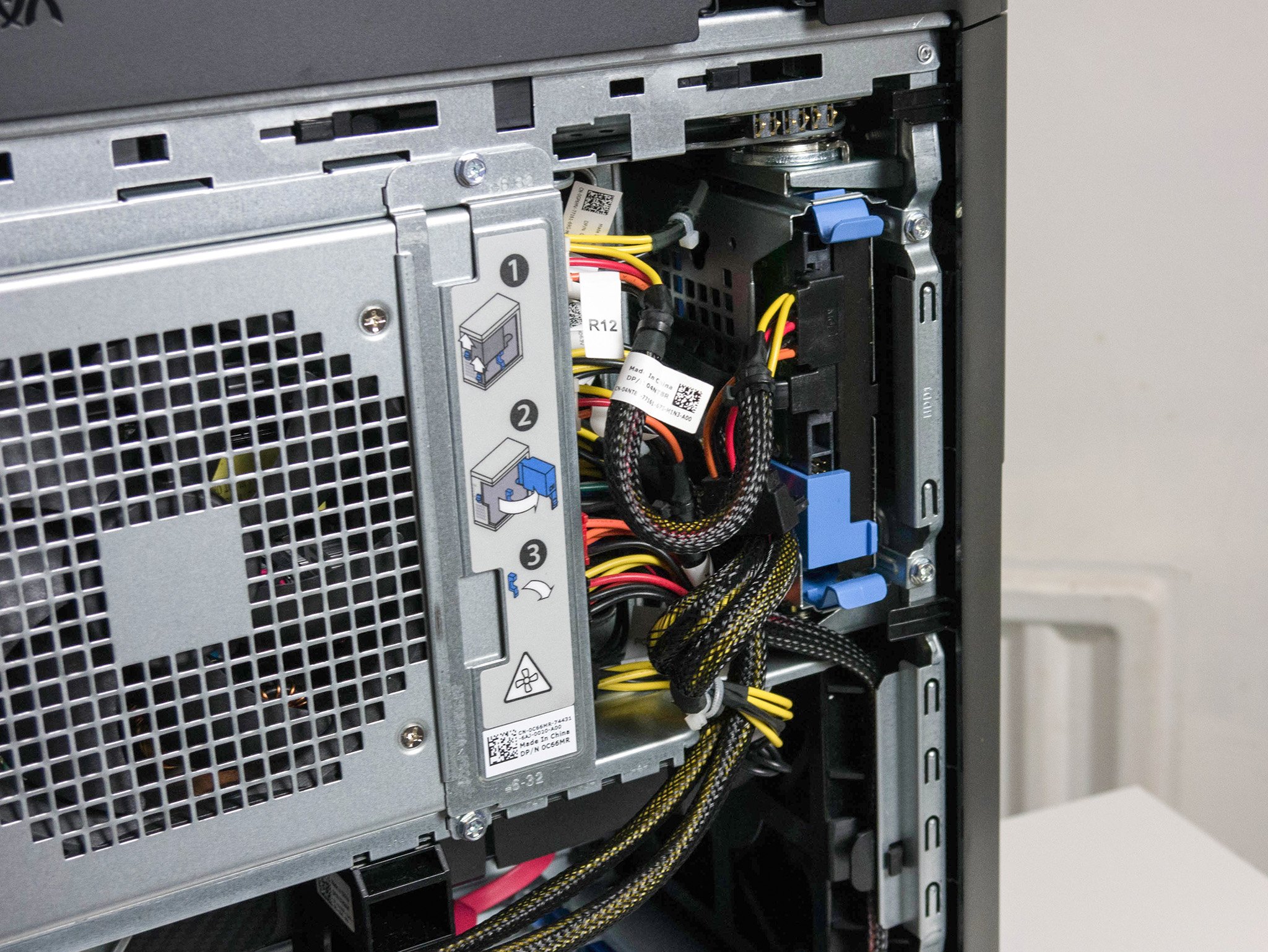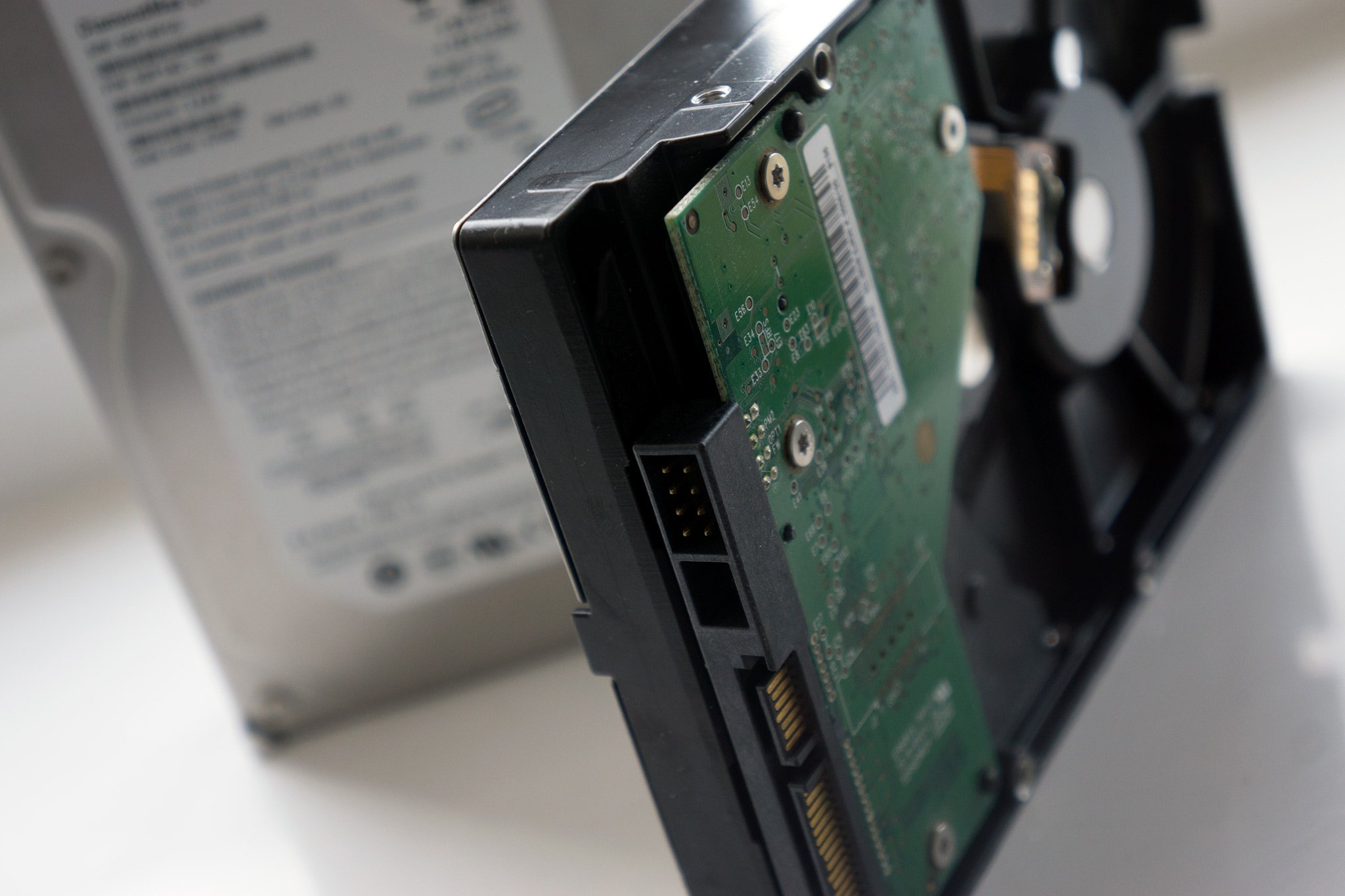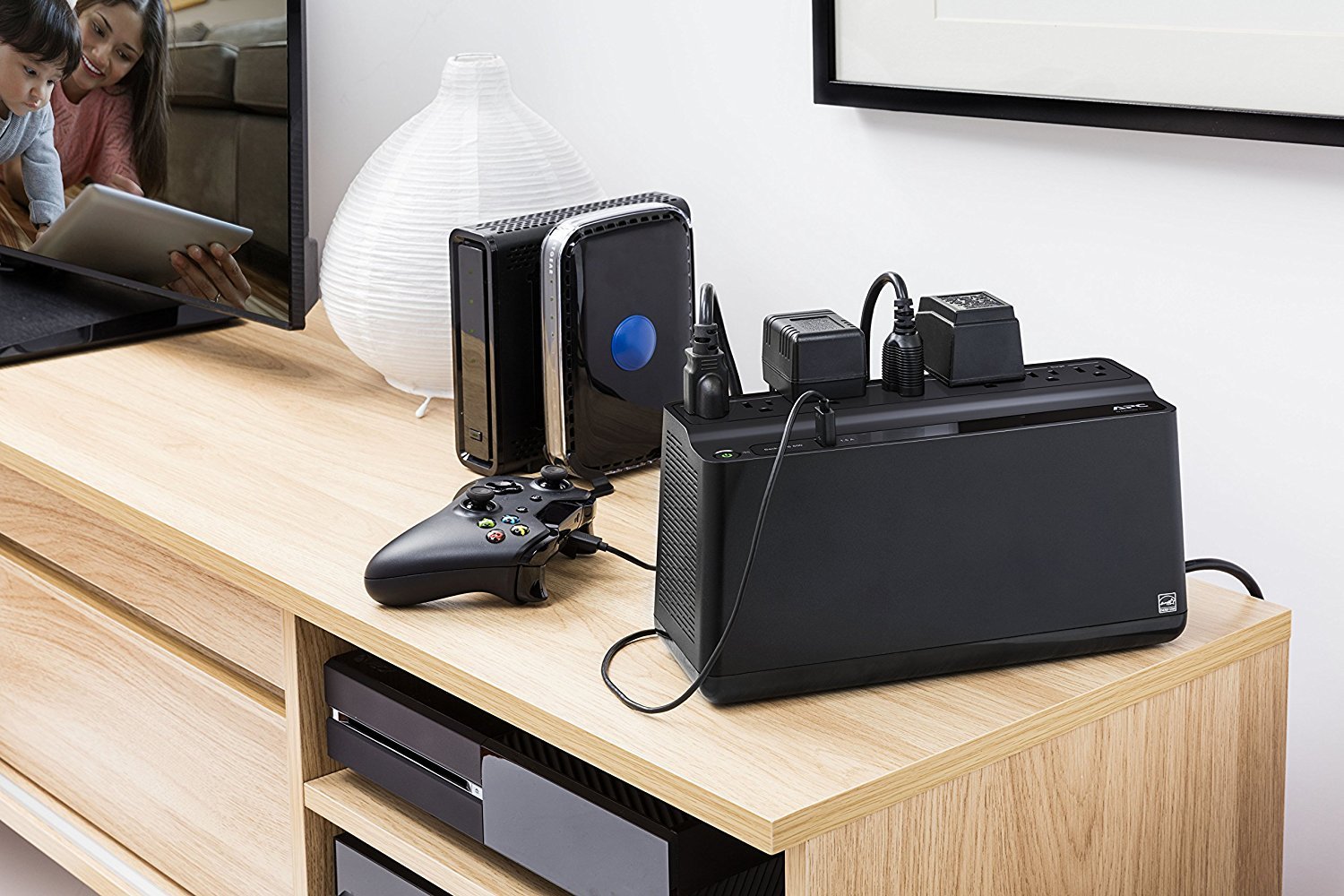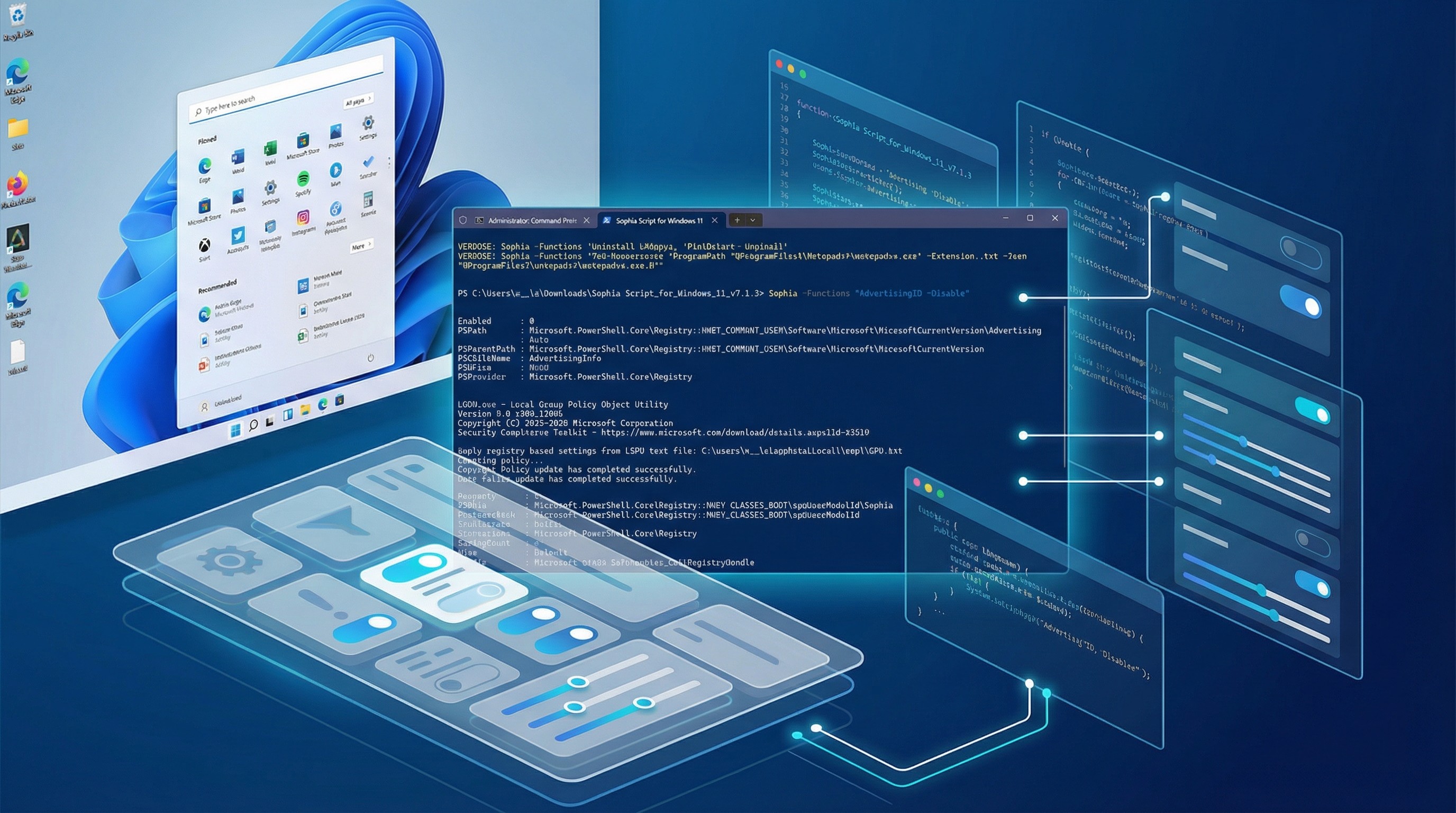
All the latest news, reviews, and guides for Windows and Xbox diehards.
You are now subscribed
Your newsletter sign-up was successful
PC battery backups, or uninterruptable power supplies (UPS), can be a worthwhile addition to your desktop PC or NAS server. They generally sit near your computer and act as an intermediary for the power from a wall outlet. Think of how seamless the transition to battery power is on a laptop when the AC adapter is unplugged, and you get a good idea of how a UPS works.
Some backups have multiple outlets on them for multiple devices, some have LED screens to display voltage information, and others are barebones and budget-oriented. However, they all provide emergency backup power for your PC. To help decide whether a UPS is right for you, let's take a look at a few common reasons why you might want one.
What does a UPS protect against?
Most UPS units worth the cost will provide you with three basic services: a surge protector, a battery backup, and a voltage regulator. The surge protector will handle the blast from something like a lightning strike that gets too close, the battery backup will give your PC enough time (five to 30 minutes depending on the UPS and your circumstances) to shut down the regular way, and the voltage regulator will even out any fluctuations in power, say from a brownout.
For the sake of your hardware
Fluctuations in power, such as surges, noise, sag, and outright blackouts, can have a profound effect on the hardware inside your PC. Think of it like cooking a piece of meat; if it doesn't get enough heat, it won't be edible, and if it gets too much heat, it will burn into something unrecognizable. It's the same for your hard drive and motherboard. Even if your hardware isn't shocked into retirement, constant fluctuations will degrade it much faster than when it's operating in a normal environment.
A good UPS will automatically correct voltage to ensure your PC and other devices connected get the right amount of power.
For the sake of your OS
Power outages can sometimes cause your OS to completely fail, especially if they happen during an update or an installation. Just search the web for the keywords "power outage Windows won't boot," and you'll see a long list of people searching for answers to this specific problem.
All the latest news, reviews, and guides for Windows and Xbox diehards.
In most cases, this problem requires a full reinstall of your OS, and reinstalling Windows can be a hassle if the correct steps to back everything up weren't taken. If you'd like to avoid this problem completely, a UPS will serve you well, especially if you set it up to automatically signal your PC to shut down in the event of a power failure.
For the sake of your data
Data that is being written or, say, transferred to an external USB drive when the power goes out can be corrupted beyond recovery if the power happens to go out during the process. This is an especially grave problem if you're operating a NAS in your home. Because they are generally in a constant state of writing and rewriting, a power failure can do quite a bit of damage to your server. Having the time, provided by the UPS, to shut your equipment down properly can be the difference between a close call and a lost cause.
For the sake of your internet
Even if you primarily use a laptop to get your work done, a power outage is going to interrupt your internet service if you don't have a UPS in place. Those of you who work from home or engage in activities that require you to have a constant connection often can't afford to lose access, so hooking your router up to a UPS is not a bad idea.
Buying a UPS
Even if you don't live in an area that experiences frequent brownouts, electrical storms, or full-on blackouts, a UPS is a good, inexpensive way to keep your PC and hardware safe. You never know when a power outage or surge will occur, and it only takes one to have you pulling your hair out in frustration.
If you've come to the conclusion that a UPS is a good addition to your PC or server, you need to now decide on which one is best for you. Here are a few things to consider.
- Wattage: Ensure that the battery backup you buy has enough power to run your desktop PC and any other devices you choose to connect.
- Outlets: Decide how many products you'll use with the UPS.
- Battery life: Decide how long you need the battery to last in the event of a power outage.
- Protection: Once you've decided which devices will be connected to the UPS, make sure the one you choose is not overkill. This will mostly be reflected in the price; you won't have to spend hundreds of dollars if you're simply connecting one desktop PC or one router to the UPS.

Cale Hunt brings to Windows Central more than nine years of experience writing about laptops, PCs, accessories, games, and beyond. If it runs Windows or in some way complements the hardware, there’s a good chance he knows about it, has written about it, or is already busy testing it.



